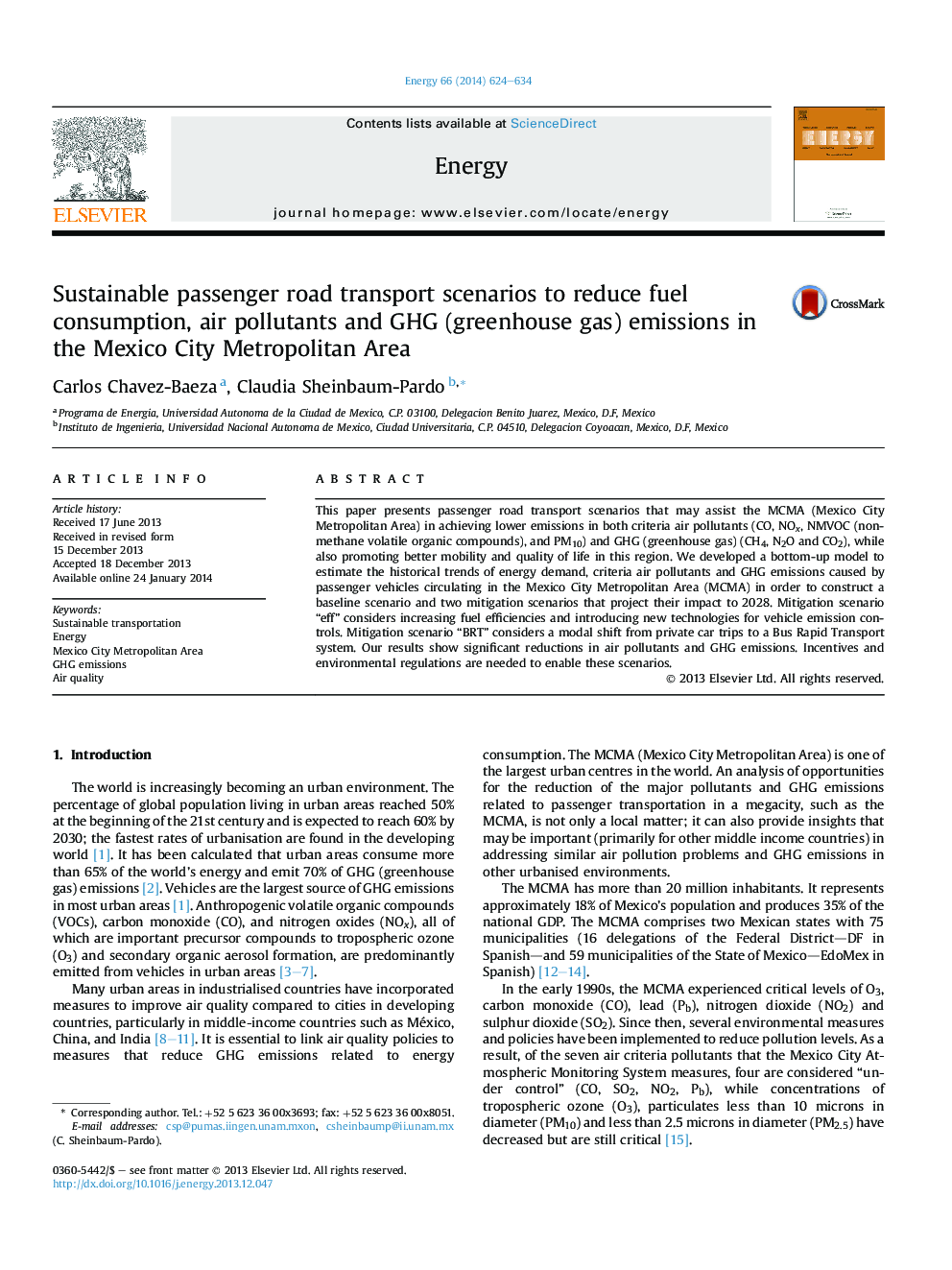| Article ID | Journal | Published Year | Pages | File Type |
|---|---|---|---|---|
| 8078496 | Energy | 2014 | 11 Pages |
Abstract
This paper presents passenger road transport scenarios that may assist the MCMA (Mexico City Metropolitan Area) in achieving lower emissions in both criteria air pollutants (CO, NOx, NMVOC (non-methane volatile organic compounds), and PM10) and GHG (greenhouse gas) (CH4, N2O and CO2), while also promoting better mobility and quality of life in this region. We developed a bottom-up model to estimate the historical trends of energy demand, criteria air pollutants and GHG emissions caused by passenger vehicles circulating in the Mexico City Metropolitan Area (MCMA) in order to construct a baseline scenario and two mitigation scenarios that project their impact to 2028. Mitigation scenario “eff” considers increasing fuel efficiencies and introducing new technologies for vehicle emission controls. Mitigation scenario “BRT” considers a modal shift from private car trips to a Bus Rapid Transport system. Our results show significant reductions in air pollutants and GHG emissions. Incentives and environmental regulations are needed to enable these scenarios.
Related Topics
Physical Sciences and Engineering
Energy
Energy (General)
Authors
Carlos Chavez-Baeza, Claudia Sheinbaum-Pardo,
